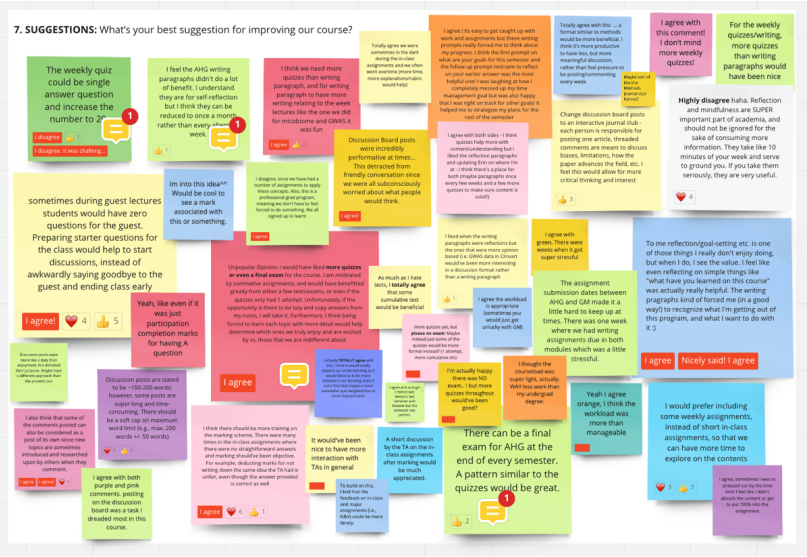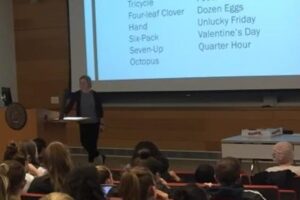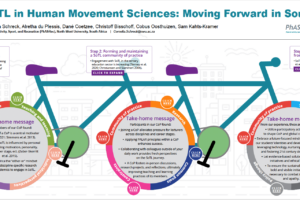
The Importance of Ending Well: Leveraging Participatory Co-Design in a Virtual Last Class Workshop
By Erin B. Styles, University of Toronto (erin.styles@utoronto.ca) and Elizabeth J. Polvi, University of Calgary (elizabeth.polvi@ucalgary.ca)
Recognizing that the last session of class at the end of the term is often not very materially productive, we have searched for a way to make this last class meaningful and functional for both ourselves and our students. The Last Class Workshop, first developed by Elizabeth Bleicher, has provided such an experience. In an in-person classroom, this dynamic workshop is framed as an opportunity for student activism and offers a wonderful opportunity to solicit meaningful real-time feedback from current students about the structure and execution of the course as it currently stands, and to brainstorm ideas for updating the course in future iterations. As the COVID-19 pandemic saw institutions around the world hitting the pause button on in-person learning, we wondered how we might transform this session to suit the required “pandemic pedagogy”; how might we offer this engaging, participation-intensive session in a synchronous, all-virtual teaching and learning environment?
The current study reflects our exploration of this question and examines two options for coordinating a virtual Last Class Workshop: one using Google Docs, and another using Miro. Student perceptions of these sessions were overwhelmingly positive and suggest that Miro—a collaborative online whiteboard platform—is the preferred model for this type of workshop. In addition to highlighting the success of this platform, our research suggests that the workshop’s impact wasn’t diminished through the transition online—our students jumped at the chance for participatory co-design and recognized that their effort during the workshop would have a direct impact on future students. This speaks directly to the overarching principles that guide the workshop: 1) Students are the experts when it comes to their own experience, 2) We as instructors want to do—and be—better, and 3) Our students, having just completed the course, are the best resource we have for getting feedback we can implement in the future!
Read more about this work in TLI here.




